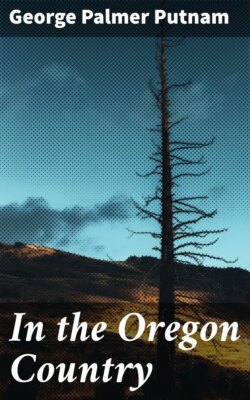Читать книгу In the Oregon Country - George Palmer Putnam - Страница 5
На сайте Литреса книга снята с продажи.
PREFACE
ОглавлениеTable of Contents
FTEN enough a preface is an outgrowth of disguised pretentiousness or insincere humility. Presumably it is an apology for the authorship, or at least an explanation of the purpose of the pages it introduces.
But no one is compelled to write a book; and, in truth, publishers habitually exert a contrary influence. It is a fair supposition, therefore, when a book is produced, that the author has some good reason for his act, whether or not the book itself proves to be of service.
Among many plausible apologies for authorship, the most reasonable is, it seems to me, a genuine enthusiasm for the subject at hand. If one loves that with which the book has to do the desire to share the possession with readers approaches altruism. In this case let us hope that the enthusiasm, which is real, and the virtue, which is implied, will sufficiently cloak the many faults of these little sketches, whose mission it is to convey something of the spirit of the out-of-door land they picture—a land loved by those who know it, and a land of limitless welcome for the stranger who will knock at its gates.
The Oregon Country, with which these chapters are chiefly concerned, has been the goal of expeditioning for a century and a quarter. First came Captain Robert Gray in 1792, by sea. Meriwether Lewis and William Clark, twelve years later, tracked 'cross country from the Missouri to the mouth of the Columbia. In 1810, the Astor expedition, under Wilson and Hunt, succeeded, after hardships that materially reduced the party, in making its way from St. Louis to the Columbia and down the river to the mouth, where was founded the town of Astoria. Finally, after a half-century of horse-and-wagon pioneering, the first railroads spanned the continent in 1869. But the Union Pacific and Central Pacific were more the concern of California than of Oregon, for the Northwest had no iron trail to link it with the parent East until in 1883 the Northern Pacific Railway, under the leadership of Henry Villard, reached Portland.
So Oregon was discovered by sea and land, and finally, as highways of steel replaced the dusty trails of the emigrants, she has come into her own. From within and without she has builded, and what she has done for her sons, and offers to her settlers, has established a place for her in the respectful attention of the world.
Now, in the year nineteen hundred and fifteen, a new era is dawning for Oregon and for all our Western Coast, through fresh enterprise, this time again by sea. The waters of the Atlantic and Pacific have been joined at Panama, our continental coast line, to all intents and purposes, being made continuous, and the two Portlands, of Oregon and Maine, become maritime neighbors. Our East and our West have clasped hands again at the Isthmus, and comparative strangers as they are, there is need for an introduction when they meet.
Not strangers, perhaps; better brothers long separated, each unfamiliar with the attainments and the developed character of the other. The younger brother, the Westerner, has from the very nature of things changed most. His growth, in body, mind, and experience, is at times difficult for the Easterner to fathom. A generation ago, he was such an immature fellow, so lacking in poise, in accomplishments, and even in certain of those characteristics which comprise what the East chooses to consider civilization; and his country, compared with what it is to-day, was so crudely developed.
The Easterner this year is the one who is coming to his brother of the West, because of the Canal, the Expositions celebrating its completion, and an immediate inclination to "see America first" impressed upon our public for the most part by the present war-madness of Europe.
It would be rank presumption for any one person to pretend to speak a word of explanation to that visitor on behalf of the Coast. As a fact, no explanation is required; the States of the Pacific are their own explanation, and their people must be known by their works. Secondly, the Coast is such a vast territory that what might be a reasonably intelligent introduction to one portion of it would be utterly inapplicable elsewhere.
So this little book does not undertake to present a comprehensive account of our westernmost States, or even of the Oregon Country. It is intended simply to suggest a few of the many attractions which may be encountered here and there along the Pacific, the references to which are woven together with threads of personal reminiscence pertaining to characteristic phases of the western life of to-day. For the stranger it may possess some measure of information; it should at least induce him to tarry in the region sufficiently long to secure an impression of the byways as well as of the highways. For the man to whom Oregon, California, or Washington stands for home, these pages may contain an echo of interest—for we are apt to enjoy most sympathetic accounts of the things we love best. But for visitor or resident, or one who reads of a country he may not see, the chief mission of these chapters is to chronicle something of their author's enthusiasm for the land they concern, to hint of the pleasurable possibilities of its out-of-doors, and, mayhap, to offer a glimpse of the new West of to-day in the preparation for its greater to-morrow.
G. P. P.
Bend, Oregon,
December 25, 1914.
